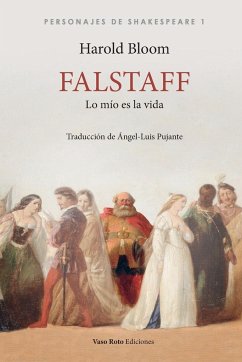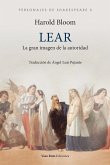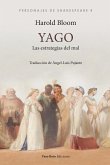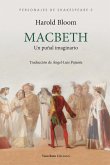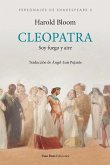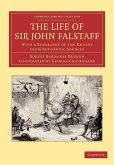Harold Bloom realiza un acercamiento literario, crítico y ante todo humanista a los personajes que considera más relevantes de Shakespeare. El primero: Falstaff. Dos años antes de su muerte, Harold Bloom inició una serie de cinco libros en los que realizaba un análisis literario, crítico y, ante todo humanista, de los personajes de Shakespeare. El primero se lo dedicó a Falstaff con quien Bloom se sentía especialmente identificado en su forma de amar la vida. Si Hamlet es embajador de la muerte, Falstaff lo es de la vida, Bloom, quien interpretó al Caballero Gordo en los escenarios del British Art Center de Yale y, anteriormente, en Cambridge, Massachusetts, veía a Falstaff, y a sí mismo como uno de esos profesores sin colegas y con numerosos estudiantes. Influido por el personaje Shakesperiano, amó la vida, la gozó, y la enseñó. No quería discípulos académicos sino seres humanos capaces de leerse y cuestionarse. Harold Bloom makes a literary, critical and above all humanistic approach to the characters he considers most relevant in Shakespeare. The first: Falstaff. Two years before his death, Harold Bloom began a series of five books in which he carried out a literary, critical and, above all, humanistic analysis of Shakespeare's characters. The first was dedicated to Falstaff with whom Bloom felt especially identified in his way of loving life. "If Hamlet is the ambassador of death, Falstaff is the ambassador of life," Bloom, who played the Fat Knight on the stages of the British Art Center at Yale and previously in Cambridge, Massachusetts, saw Falstaff, and himself as one of those professors without colleagues and with numerous students. Influenced by the Shakespearean character, he loved life, enjoyed it, and taught it. He did not want academic disciples but human beings capable of reading and questioning themselves.
Hinweis: Dieser Artikel kann nur an eine deutsche Lieferadresse ausgeliefert werden.
Hinweis: Dieser Artikel kann nur an eine deutsche Lieferadresse ausgeliefert werden.

